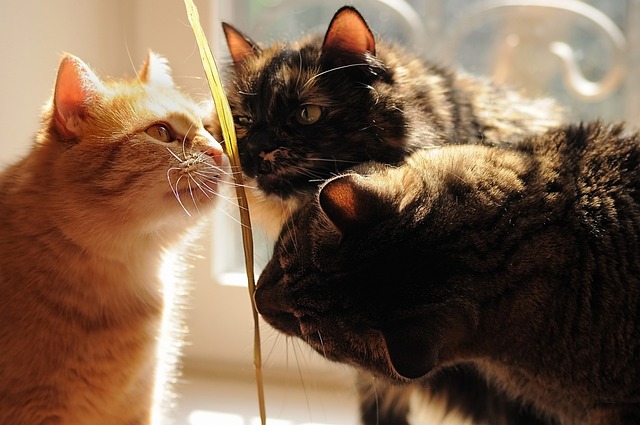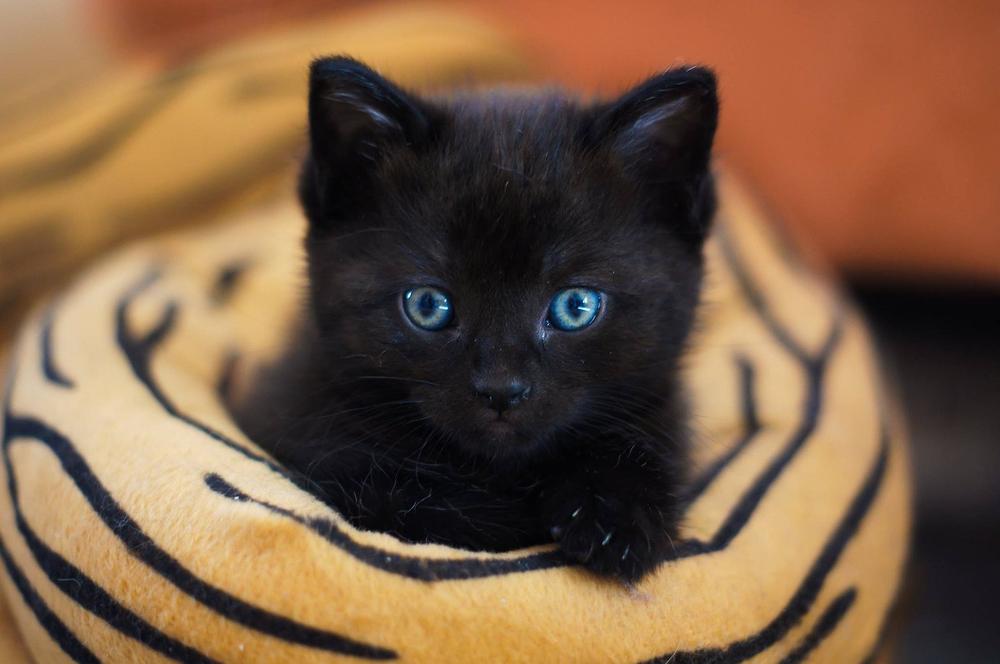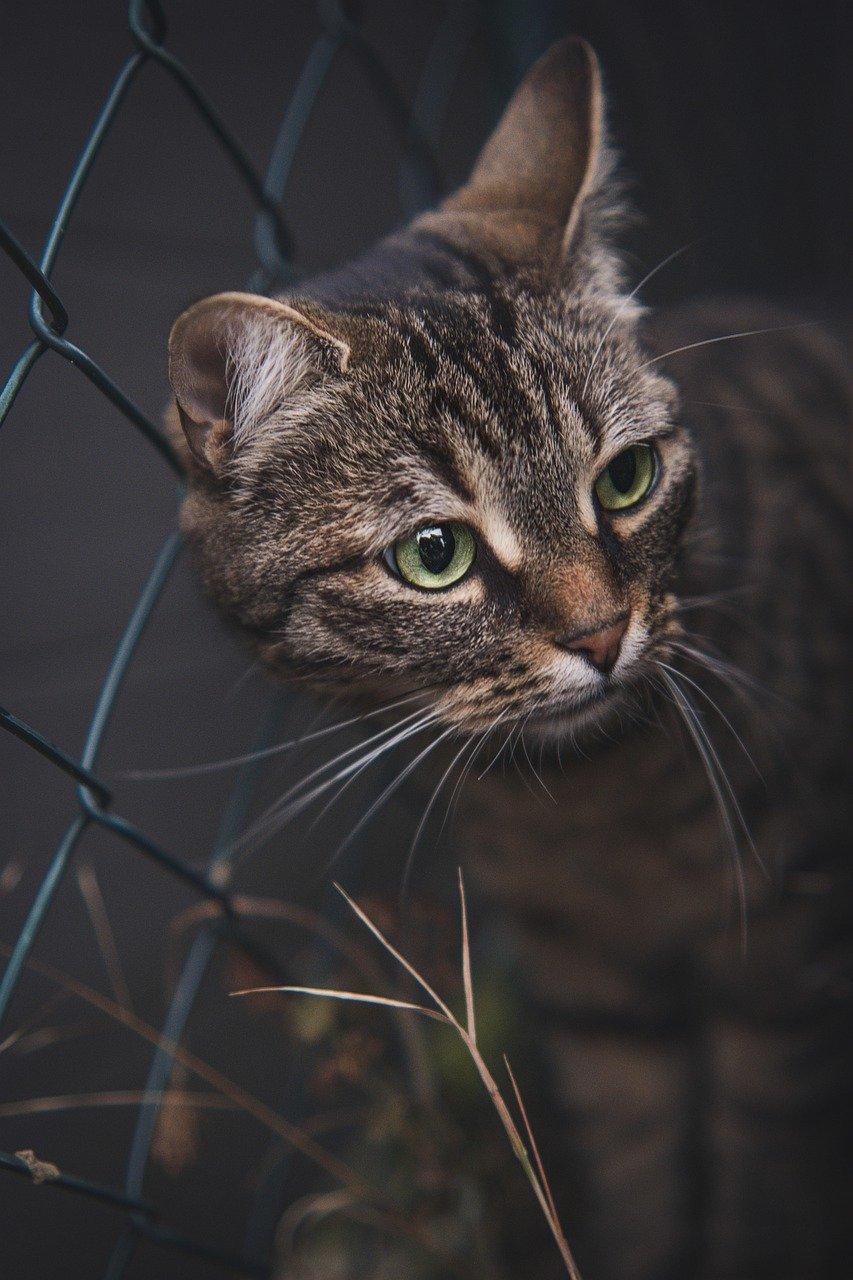Can Cats Recognize the Names of OTHER Cats?

Ever wondered if your feline friend can actually understand the names of their fellow whiskered counterparts?
Curiosity piqued? 😺
Well, hold on to your catnip because we're about to dive deep into this intriguing phenomenon.
You might be thinking, "No way. Cats can't possibly comprehend names!"
But guess what?
Prepare to have your mind blown.
Let's embark on this journey together and unlock the secrets behind our purr-fect pets' communication skills.
Ready?
Let's begin.
Cats Recognizing Each Other's Names: Studies and Research
Recent studies have shown that cats have the remarkable ability to recognize the names of other cats. This skill is believed to be a result of their evolution from wildcats to domesticated cats. Cats in different environments, such as households or cat cafés, may display varying levels of name recognition.
Can you believe it?
Cats can actually recognize each other's names!
A recent study by Akiko Takaoka and her colleagues uncovered this amazing fact.
Cats have a special ability to remember familiar sound patterns that are connected to specific individuals. Isn't that just mind-blowing?
And here's the kicker:
This name recognition skill extends to our beloved pet cats too.
It's possible that this stems from their evolution from wildcats to domesticated cats.
But wait, it gets even more interesting. Cats who live in households show curiosity when there's a difference between a cat's image and its name.

It's as if they actually recognize the names of other cats!
Imagine that - your fluffy companion could be part of a secret feline society!
Here's where things get really exciting.
Cats from cat cafés respond instantly, without any delay.
This suggests that there could be differences in name recognition abilities influenced by their environment.
So, whether your cat lives at home or spends time at a café, their ability to recognize names is pretty remarkable.
So go ahead, call out your kitty's name with pride.
They might just recognize it like other cats do. How cool is that?
I bet you're feeling pretty amazed right now. I know I am!
Main points I'll expand upon further down this article:
- Cats have a remarkable ability to listen and communicate with humans.
- Certain facial deformities may hinder cats' communication abilities.
- Breeding for external beauty may unintentionally impact cats' cognitive skills.
- Cats can recognize and respond to the names of people they live with.
- Cats actively pay attention and learn name-face relationships.
- Scientists are unsure of how cats learn the names and faces of other cats.
- Exposing cats to stimuli like names and faces increases the chance of association.
- Cats in cafés may not recognize each other's names like house cats.
- The number of cats in a home can affect a cat's ability to recall names.
- Cats who have been part of a family for a while are more likely to recognize their names.
And you won't believe what else cats are capable of when it comes to communication!
It's truly mind-boggling.
Understanding the Communication Abilities of Cats
Cats are amazing at communication, using nonverbal language with their bodies to express themselves.
If their tail is up and ears are forward, it means they're friendly and ready to play.
And believe it or not, cats can recognize names just like dogs do!
So, imagine having multiple cats and calling out one of their names - only that cat will come.
They pay attention to conversations and remember who's who.
Not only do cats understand human names, but they also recognize other cats by name.
It's like they have their own secret code, calling each other by name.
But breeding practices focused on looks rather than cognitive skills can affect a cat's ability to communicate effectively.
We should keep that in mind.
However, cats have shown that they're clever. One cat even escaped a testing room when researchers weren't looking.
We still have much to learn about how cats communicate, but their ability to recognize names is impressive.
They rival any other furry friend in their communication skills.
Maybe there's a hidden language among cats that we humans can't fully understand.
It's fascinating, isn't it?
But you might still be wondering, can cats actually understand words? If you're curious about the science behind their communication abilities, I invite you to delve deeper into the topic by reading my blog post, Do Cats Understand Words.
In it, I explore the fascinating world of feline linguistic skills and the research conducted to unravel their mysterious communication methods.
Don't miss the chance to gain further insights! Learn more...
The Role of Vocal Cues in Cat Name Recognition
Cats, like trained ones, can hear and recognize their names or the names of other cats in their group. They show this by making sounds.
How do they learn these names?

Scientists are not sure yet about the precise way. But one thing is certain:
Cats have an amazing ability to remember and associate specific names with specific individuals within their social circle.
Whether it’s through observation or some other mysterious method, cats seem to have a knack for remembering who's who among their furry friends.
The exact process remains a mystery—but in the world of cats, mystery is part of the charm.
Unveiling Name Recognition: Teaching Cats to Respond Correctly
When it comes to teaching cats to respond correctly to their names, positive reinforcement is key.
Associating treats or affectionate rewards with their name and desired behavior helps build a strong connection in their minds.
Exposing cats to stimuli like names and faces enhances their ability to associate those names with the correct response.

To further reinforce the association between their name and desired behavior, consistently reward your cat when they respond correctly.
But how can you ensure your cat is truly learning their name?
Here are some practical tips to help with name recognition:
- Start in a quiet environment where your cat is relaxed and focused.
- Use their name frequently and consistently during training sessions.
- Reward them immediately and enthusiastically when they respond correctly.
- Gradually increase distractions to gauge their level of understanding.
- Practice short training sessions multiple times throughout the day for better retention.
- Be patient and persistent, as every cat learns at their own pace.
Your cat will be on the right track to learn how to properly react when called by their name with the help of these suggestions.
Good luck!
Benefits of Cats Recognizing Each Other's Names
Knowing each other's names is important for cats.

Here's why:
- When cats know each other's names, it helps them bond and work together better.
- It also reduces fights and conflicts between cats because they can understand who is who.
- The number of cats in a house might affect how well they remember names.
- If you communicate and spend time with your cat, it strengthens the connection between you and your furry friend.
- Cats have strong emotional ties to their owners and other cat friends.
- Because cats are so attached to their human companions, they are inclined to learn their names.
- In cat cafés where there are many unknown cats and people, it can be harder for cats to learn each other's names.
Knowing names not only helps cats communicate better, but also makes life more peaceful for both cats and their owners.
Practical Tips for Helping Cats Learn and Respond to Names
Here are some practical tips for helping your cats learn and respond to their names:
- Use positive reinforcement: Associate the cat's name with rewards, such as treats or playtime.
- Create a calm environment: Find a quiet and relaxed setting where your cat feels comfortable and can focus on learning.
- Start early: Whether you've just adopted a new cat or have had them for a while, it's never too late to start teaching them their name.
- Be consistent: Use the same name consistently when calling your cat to help them recognize it more easily.
- Keep sessions short and frequent: Cats have shorter attention spans, so keep training sessions brief but do them regularly throughout the day.
- Use a clear and distinct voice: Speak your cat's name in a confident and engaging tone to catch their attention.
- Pair their name with positive experiences: Call your cat's name right before giving them their favorite treat or engaging in playtime.
- Practice patience: It may take time for cats to associate their name with a desired response, so be patient and consistent in your training efforts.
Cats are individuals, and each may learn at their own pace.

With these tips and a little bit of effort, you'll soon see your cats responding when you call their names. 😺
And that wraps up today's article.
If you wish to read more of my useful articles, I recommend you check out some of these: How Cats Choose Their Favorite Person, Why Does My Cat Lick Me and Not My Husband, Why Do Cats Bob Their Heads, Can Cats Sense if You Dont Like Them, and Do Cats Know When You Are Sad
Talk soon,
-Sarah Davis